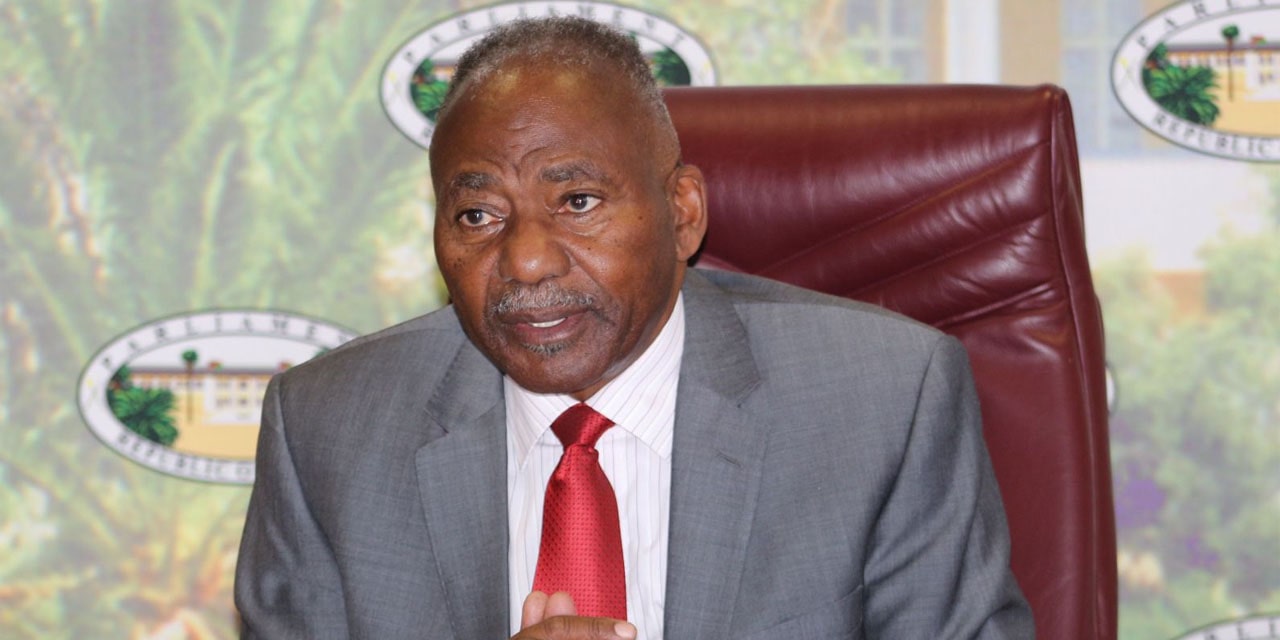Tujoromajo Kasuto
The Speaker of the National Assembly, Peter Katjavivi, says the Anti-Corruption Commission (ACC) is mandated by its enabling legislation to table its reports in the National Assembly, hence the interest relating to the work of the Anti-Corruption Commission.
He says to fight corruption efficiently and effectively, there needs continuous promotion of a national culture of transparency. “It is therefore imperative that we continue to strengthen the relationship between ACC and the oversight body, such as Parliament through its various Parliamentary Standing Committees,” he adds.
Katjavivi notes that “the fight against corruption is not solely the responsibility of ACC but requires all of us to collectively commit to this noble cause”. He further notes that it is imperative that collaboration is promoted together with national leaders, including traditional leaders, church institutions, civil society organisations, the media as well as international bodies to fight corruption and ensure good governance.
“As a nation it is our duty to collectively reject corruption at all times, and we must double our efforts in promoting public awareness and advocacy which will instill national pride across all sectors,” Katjavivi adds.
“Therefore, this National Conference on the Namibian Anti-Corruption Strategy and Action Plan 2021 – 2025 comes at an opportune time for us to renew our collective efforts against corruption,” says the Speaker.
The National Conference on the second National Anti-Corruption Strategy and Action Plan 2021 – 2025 is hosted by ACC in Windhoek.
A strategy is being developed in line with Article Five of the United Nations Convention against Corruption (UNCAC), which calls for State Parties to develop and implement effective, coordinated anti-corruption policies that promote the participation of society and reflect the principles of the rule of law, proper management of public affairs and public property, integrity, transparency and accountability.
The National Conference took place under the theme, “Nurturing synergy to promote an effective system of integrity, transparency, ethics and accountability in all sectors of society in Namibia”.
Bringing together Members of Parliament (MPs), Governors, Chairpersons of Management Committees of local auuthorities’ councils , and other key stakeholders under one roof, is aimed at making final inputs and validate the National Anti-Corruption Strategy and Action Plan 2021-2025, as well as nurture relations between stakeholders to promote an effective system of integrity, transparency, ethics and accountability in all sectors of society in Namibia.
According to Katjavivi, in August 2016, Cabinet approved the country’s first National Anti-Corruption Strategy and Action Plan 2016-2019, which ended in March 2020. Subsequently, at its meeting on 9th March, Cabinet noted and appreciated the progress made in implementing the anti-corruption activities, and therefore decided that consultative meetings for the development of a second revised National Anti-Corruption Strategy and Action Plan be held, which must culminate in the implementation of the anti-corruption programmes for 2021-2025.
Prime Minister Saara Kuugongelwa-Amadhila, the key note speaker, says it is critical to note that the fight against corruption and promoting good governance is a continuous undertaking. While good achievements were realised in the implementation of the first national and anti-corruption plan, there is a need to increase the momentum, states Kuugongelwa-Amadhila.
The ACC, which is the coordinating institution of the National Anti-Corruption Strategy and Action Plan undertook regional consultation meetings on the Draft National Anti-Corruption Strategy and Action Plan 2021-2025 as from 26 April to 22 July 2021. This strategy was developed through extensive desk research and regional consultations to have input that would shape the second National Anti-Corruption Strategy and Action Plan 2021-2025.




